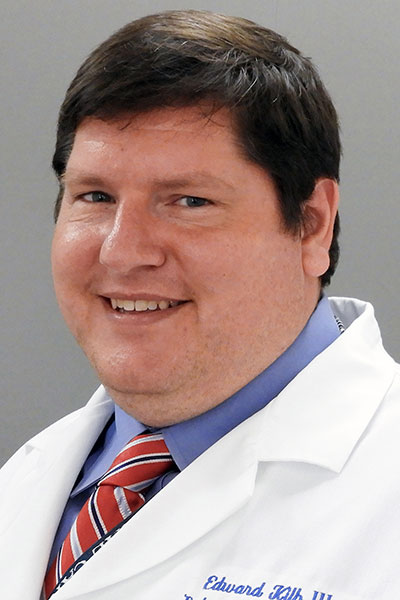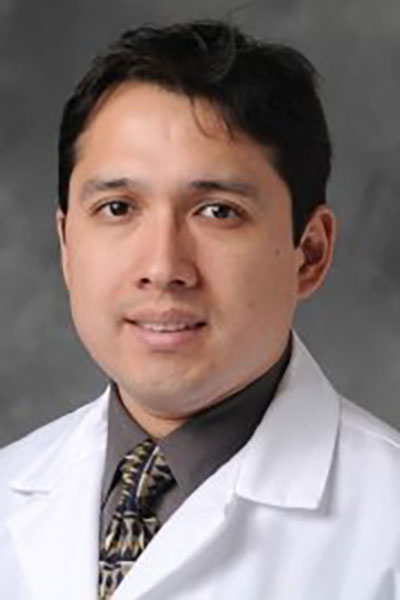The first session of the Adult Critical Care Clinical Core Curriculum begins on Tuesday, May 21, from 2:15-3:45 p.m., emphasizing cardiac considerations in critical care.

“We have seen a lot of growth in cardiology critical care and cardiac intensive care borne out of the advancements in mechanical circulatory support,” explained Critical Care Clinical Core Curriculum Chair Edward Kilb, MD, assistant professor at the Medical University of South Carolina. “Particularly, after the pandemic, we are in a place where we utilize a lot of these resources and have much more data on best practices in using external mechanical circulatory devices to support patients with refractory shock, so we thought it would be a good theme to go through this year’s presentations with an eye towards shock management.”
Tuesday’s first presentation, “The Rhythm is Gonna Get You: Managing Unstable Arrhythmias in the ICU,” will be led by Zhenmei Zhang, MD, Mayo Clinic Hospital, Rochester, MN. Whether care teams in the ICU are dealing with common arrhythmias like atrial fibrillation or life-threatening conditions like ventricular arrhythmias, providers need to be aware of, and follow recommended best practices for, these scenarios.

“In addition to identifying and managing these abnormal arrhythmias, the session will also cover how they impact patients receiving care for other conditions commonly seen in the ICU,” said Critical Care Clinical Core Curriculum Vice Chair Javier Diaz-Mendoza, MD, associate professor of medicine at Henry Ford Hospital-Wayne State University.
Following Dr. Zhang’s presentation, W. Cameron McGuire, MD, MPH, clinical instructor at the University of California San Diego Health, will present “Under Pressure: Use of Vasopressors for Hemodynamic Support.”
“Providers tend to have a favorite first-line vasopressor agent for shock, but a lot of people are unfamiliar with the studies that we have done to identify best practices with these drugs,” Dr. Kilb said. “This will be a helpful review of vasopressors and answer questions that audience members might have about why we utilize a particular vasopressor based on the situational context.”
To wrap up Tuesday’s session, Denise Sese, MD, assistant professor at the Medical University of South Carolina, will share “Total Eclipse of the Heart: Management of PE and RV Failure.” Dr. Sese will review how to identify and manage patients experiencing right ventricular failure due to pulmonary embolism. She will also cover best practices for treating patients with pulmonary hypertension as a baseline disease and associated conditions that can subsequently develop and lead to acute heart failure.
“This is an important topic because dealing with patients with right-sided heart failure is not that common and often challenging to manage,” Dr. Diaz-Mendoza explained.
The core curriculum series aims to support clinicians engaged in the maintenance of certification activities by providing updates on subjects included in recertification requirements. The ATS Clinical Core Curriculum Symposia focuses on key topics in the areas of Adult and Pediatric Pulmonary, Critical Care, and Sleep Medicine. The topics are aligned with corresponding MOC Medical Knowledge modules. This symposium is intended to help clinicians stay up to date with important information relevant to their medical practices and to provide an opportunity for clinicians to evaluate their knowledge and skills while earning MOC Medical Knowledge credits.
The second and final Adult Critical Care Clinical Core Curriculum session is scheduled for Wednesday, May 22, from 11 a.m.-12:30 p.m.
Extend Your Learning Beyond San Francisco with ATS 2025 Conference Highlights

With so many valuable educational opportunities offered during the ATS 2025 International Conference, attendees are often forced to decide which sessions to prioritize. That’s why the Society is offering three ATS 2025 Conference Highlights packages for those unable to attend ATS 2025 San Francisco or attendees interested in continuing their education after the conference. Check out the packages and pick the one that’s right for you. Learn at your own pace, whenever and wherever you are!

